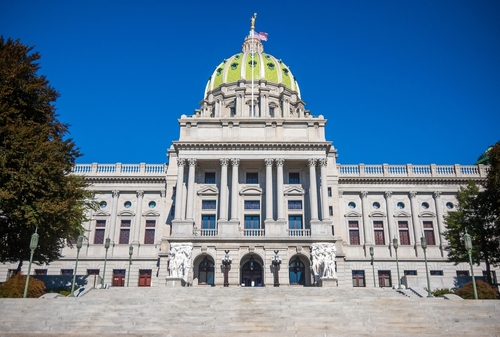
The Pennsylvania Senate on Wednesday approved a Republican-led bill to establish a sweeping, new energy framework for the state.
“Pennsylvania has one of the most diverse energy portfolios in the United States,” said State Sen. Gene Yaw (R-23), the bill’s sponsor. “There is no question we can capitalize on our state’s energy richness, but first we must stop apologizing for it.”
The Senate voted 28-22 to pass Senate Bill (SB) 832, which would create the Independent Energy Office (IEO) and Pennsylvania Opportunity With Energy Reliability (POWER) Board.
Yaw noted that the IEO would be modeled after Pennsylvania’s Independent Fiscal Office, which does not support or oppose any policy it analyzes and discloses the methodologies, data sources, and assumptions used in published reports and estimates, according to his office.
Specifically, the IEO would provide data-driven analysis to ensure lawmakers have the necessary information to review and implement current energy strategies, as well as be on the forefront of new innovative technologies.
“I believe an Independent Energy Office can provide impartial, timely and data-driven analysis to guide our state in determining and meeting future energy needs,” Yaw said Wednesday.
Meanwhile, the POWER Board would operate as a public clearinghouse for energy development in Pennsylvania and allow residents to see public accountability on decisions that impact energy prices in Pennsylvania, according to state Sen. Camera Bartolotta (R-46).
“Given the demand for energy we have in the Commonwealth, we have to be strategic about how we meet the needs of Pennsylvanians,” Bartolotta said. “We cannot afford to abandon energy strategies that give us peace of mind and benefit our economy through family-sustaining jobs.”
Additionally, SB 832 would overhaul the former Pennsylvania Energy Development Authority by replacing its 19-member board with the 11-member POWER Board.
“This board will provide the non-biased information legislators need to make the best decisions and the public needs to be aware of what drives their bills,” added Bartolotta.
The lawmaker added that Pennsylvania also should apply for federal funding being offered to states to grow solar, wind, hydro, and nuclear capacities. These grants would help the Commonwealth provide a framework to distribute funds throughout the state.
The General Assembly has not yet established this framework and statutory authority is needed, according to Bartolotta, who noted that PA Senate Environmental Resources and Energy Committee hearings established that Pennsylvania’s destabilized power grid won’t be able to meet the Commonwealth’s future energy needs, requiring an all-of-the-above strategy that recognizes the use of all available energy sources.
Senate Majority Leader Joe Pittman (R-41) said that implementing common-sense energy policy in Pennsylvania would create economic opportunities.
“Pennsylvania continues to lose business and energy opportunities to states like Ohio and West Virginia,” Pittman said. “That means our state’s energy trade workers aren’t packing lunch boxes to go to work here; they’re packing suitcases to go to West Virginia and Ohio because we don’t have enough energy development growth in this commonwealth.”
The PA Senate Appropriations Committee passed SB 832 on Feb. 5 and the bill on May 1 moved to the Pennsylvania House of Representatives, which referred it for consideration to the PA House Consumer Protection, Technology and Utilities Committee.